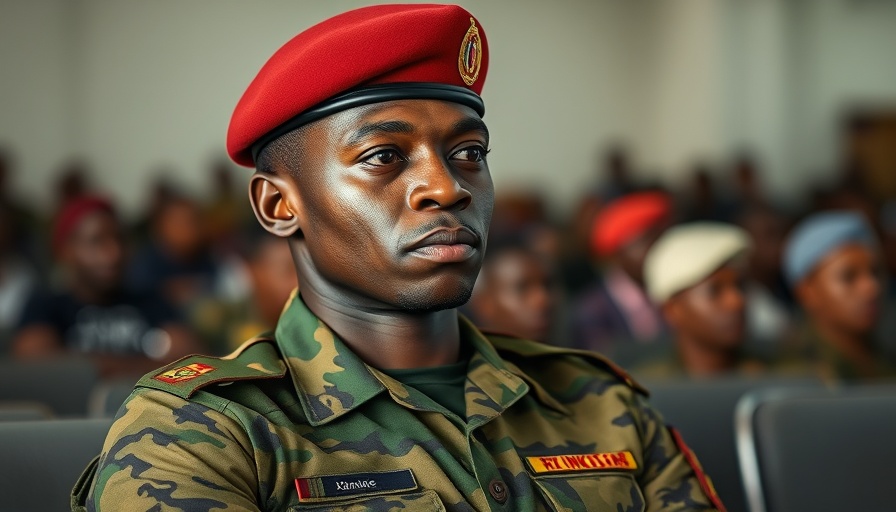
A Historic Show of Support Amidst Rising Tensions
In a stunning display of public support, thousands gathered in Burkina Faso's capital, Ouagadougou, on Wednesday to rally behind transitional president Captain Ibrahim Traoré. This mass mobilization, described as one of the largest gatherings since Traoré seized power in a September 2022 coup, reflects not only the citizens' loyalty but also their escalating frustration with external criticisms and what they perceive as unfair international interference.
In 'Thousands of people rally in support of Burkina Faso's transitional president', the discussion dives into recent public demonstrations advocating for Captain Ibrahim Traoré, exploring key insights that sparked deeper analysis on our end.
Echoes of Past Struggles
The rally was triggered by remarks from General Michael Langley, head of the United States military in Africa, who accused Traoré of exploiting the nation's mining resources for personal benefit rather than for the people. Demonstrators vehemently rebutted these claims, echoing historical sentiments deeply rooted in Burkina Faso's struggle for sovereignty. "The American general is a liar!" exclaimed one protester, underscoring the unity among citizens in defending their president against what they view as neo-colonial critiques. The rally’s fervor is accentuated by the haunting memories of past political assassinations, particularly that of Thomas Sankara in 1987, which still stirs emotions among the populace.
National Unity and Political Resilience
The show of solidarity not only highlighted a commitment to Traoré but also served as a platform for broader national discourse regarding self-determination and governance in Burkina Faso. Prime Minister Jean Emmanuel facilitated discussions emphasizing that the time has come for the people to assert their rights against external pressures, framing the moment as a critical juncture for both the nation and the Sahel region.
Youth at the Forefront of Change
As the future of Burkina Faso hangs in the balance, the youth have taken to the streets, advocating for change and a new political paradigm. With a growing discontent for historical political dynamics that they feel have not served their interests, the youth—armed with social media—have emerged as powerful voices in shaping political narratives and demanding accountability. Their mobilization is indicative of a larger trend across Africa, where young people increasingly challenge the status quo and seek to redefine the trajectory of their nations.
Understanding the Underlying Issues
The triumphs and tribulations of recent political events in Burkina Faso should be viewed through a lens that considers the role of external influence on African politics. The military's assertion of authority, coupled with generalized sentiments of insecurity, reflects an ongoing struggle against perceived power imbalances. This situation showcases a critical intersection between national sovereignty and global diplomacy—one that demands careful navigation to avoid precipitating further conflict.
Future Predictions: The Road Ahead for Burkina Faso
As Burkina Faso grapples with these emerging issues, the political landscape is likely to evolve. Analysts suggest that the government's commitment to addressing the grievances of ordinary citizens will determine both the legitimacy of the transitional regime and the future of democratic practices in the country. Furthermore, the international community's approach toward Burkina Faso could play a significant role in shaping the stability of the region, especially considering the challenges related to security and economic development.
Conclusion: A Call to Understand and Engage
The developments unfolding in Burkina Faso resonate with essential themes that extend beyond its borders. Engagement with African contexts, especially in conversations surrounding governance and development, is critical. As external observers, it is imperative to support methods that promote genuine dialogue and understanding while standing against any form of neocolonialism that threatens to undermine the sovereignty of nations. The people of Burkina Faso have made their voices heard; now is the time for the international community to listen and learn.
 Add Row
Add Row  Add
Add 




Write A Comment